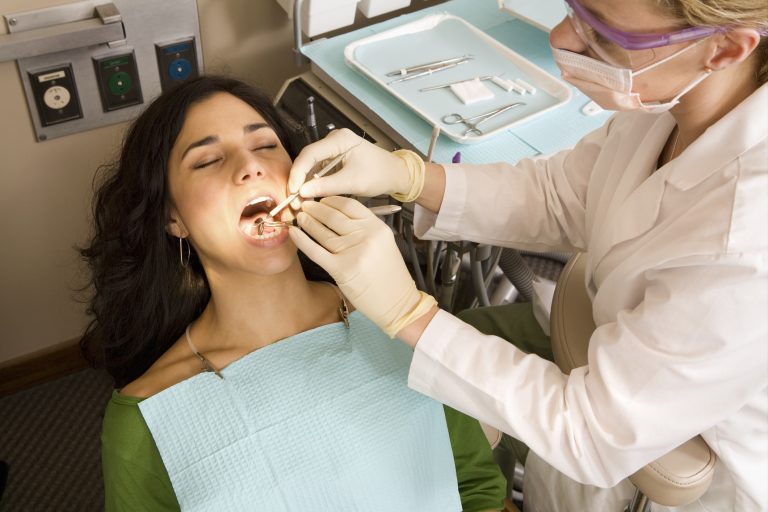
You may not think dental and heart health have much in common, but increasing evidence suggests they may be closely linked. Researchers suspect that bacteria present in periodontal (gum) disease can travel throughout the body, triggering inflammation in the heart’s vessels and infection in heart valves. But it’s not just the heart; gum disease has also been linked to other severe chronic inflammatory diseases such as diabetes, arthritis, and even cancer.
Now researchers at the University of Toronto have found the missing link connecting gum disease to inflammatory diseases, and say it’s related to the body’s hyperactive immune response. Their findings, “Periodontal Inflammation Primes the Systemic Innate Immune Response,” were published in the Journal of Dental Research.
“There are statistically significant correlations between periodontitis (oral inflammatory disease) and systemic diseases ranging from diabetes to cardiovascular diseases,” stated Howard Tenenbaum, professor at the University of Toronto’s Faculty of Dentistry, and chief dentist at Sinai Health Systems in Toronto, who is one of the authors of the study.
To find what linked the correlations, the researchers focused on the behaviors of neutrophils which are primarily activated by gum disease.
“In PD, tissue and bone destruction in the mouth is driven by elevated recruitment of polymorphonuclear neutrophils (PMNs), which are primed and recruited from the circulation to sites of inflammation,” noted the researchers. “We predicted that systemic effects on PMN mobilization or priming could account for the interaction between PD and other inflammatory conditions. We tested this using a mouse model of ligature-induced PD and found elevated PMN counts specifically in bone marrow, supporting a systemic effect of periodontal tissue inflammation on PMN production.”
Once periodontal inflammation was present, an overabundance of neutrophils circulated, causing the hyperactive immune system to respond with an excess of force to any secondary infection.
“It’s almost as if these white blood cells are in second gear when they should be in first,” explained Michael Glogauer, professor at the University of Toronto’s Faculty of Dentistry, dentist-in-chief at the University Health Network, and head of dental oncology at Toronto’s Princess Margaret Cancer Centre. “The [neutrophils] are much more likely to release cytokines much more quickly, leading to negative outcomes,” he added.
The findings reinforce the idea that oral health is a window and indicator to your overall health. There are many connections between oral health and overall health besides diabetes, cardiovascular disease, and arthritis. The researchers’ findings may open a door of understanding for other inflammatory diseases and might even relate to COVID-19.
“There is evidence out there that patients with periodontal disease may be much more likely to have negative outcomes with COVID-19,” explained Glogauer. The current study could provide some clues as to why: “Neutrophils are the cells that are at prime risk of causing cytokine storms. That’s the exact cell we show is primed with people with periodontal disease,” he added.
Research into the relationship between neutrophils and inflammation is ongoing.











